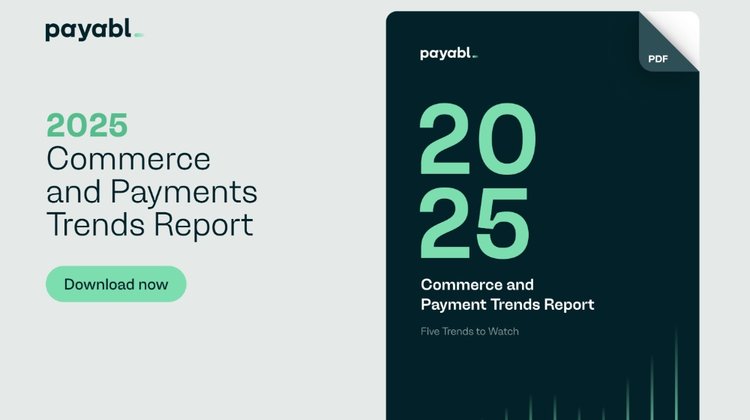Digital wallets and open banking set to dominate payments in 2025, say merchants
Press Release 12:15 - 03 December 2024

A recent survey of merchants conducted by payabl., one of Europe’s leading financial services providers, reveals digital wallets and Open Banking as pivotal forces set to transform the payments landscape in 2025.
The survey reveals that 82% of merchants anticipate a surge in digital wallet usage, while 70% expect Open Banking and instant bank transfers to gain popularity as consumer demand for convenient, secure payment options continues to grow.
Other methods that merchants anticipate will become more popular include QR code payments (34%), BNPL options (26%), cryptocurrencies (21%) and CBDCs (11%).
The findings reflect an industry-wide shift toward faster, more adaptable payment methods that meet consumer expectations in an increasingly digital economy. A majority of respondents (60%) noted that consumer demand for convenience is the top driver of innovation, followed by advances in technology (53%) and regulatory changes (50%), underscoring the competitive advantage of seamless, user-friendly payment solutions.
Building the future: strategic investments in AI and data analytics
Merchants are responding to payment challenges with a focus on technology that supports both security and operational agility. 66% of merchants plan to invest in artificial intelligence (AI) over the next 12 months, recognising its role in real-time fraud detection and improved payment performance. Additionally, 57% are adopting data analytics to gain critical insights into payment behaviour, while 39% prioritise API-based integrations to enhance flexibility and security in their payment ecosystems.
Fraud prevention and regulatory compliance are the major challenges facing the industry
When asked about the top challenges expected for the year ahead, fraud prevention topped the list, with 66% of respondents identifying it as a primary concern. Following closely behind, regulatory compliance also emerged as a significant challenge, with 61% of participants highlighting the complexities of navigating evolving regulations. Cybersecurity threats also ranked high, with 47% of respondents expressing concern over the increasing risks to payment systems.
In addition, the survey identified other challenges that are likely to impact the industry, including the integration of new technologies like AI (45%), and the ongoing complexities of cross-border payments (10%). Customer experience optimisation and cost management were also cited by 32% and 26% of respondents, respectively.
"Merchants are clearly focused on future-proofing their payments strategy to meet the growing demand for convenience and flexibility and address the major challenges around regulatory compliance and fraud prevention," said Ugne Buraciene, Group CEO of payabl. "By aligning technology investments with these consumer expectations, they are not only boosting resilience but also paving the way for a sustainable, future-ready ecosystem."
Facing new realities: SEPA Instant
As Europe’s SEPA Instant payment deadline approaches on 9 January 2025, industry readiness remains uncertain. While banks and PSPs are required to support instant payments, only 24% of respondents believe the industry will be fully prepared, highlighting the importance of collaborative efforts across regulatory bodies, financial institutions, and merchants to ensure a smooth transition.
Trends shaping the payments industry
Respondents identified instant payments as the most transformational trend in the payments landscape, with 58% identifying it as having the biggest impact on the industry. Regulatory changes, including PSD3 and APP fraud regulations, were also highlighted, with 52% of respondents noting their influence. The integration of AI and machine learning was identified by 45% as a critical trend reshaping the industry.
Other notable trends that are making an impact include open banking (36%), BNPL (27%), and cross-border payments (25%). Meanwhile, cryptocurrencies and digital assets are also garnering attention, with 19% of respondents recognising their growing influence. Lesser-discussed trends include embedded finance (13%) and sustainable payments (8%).

